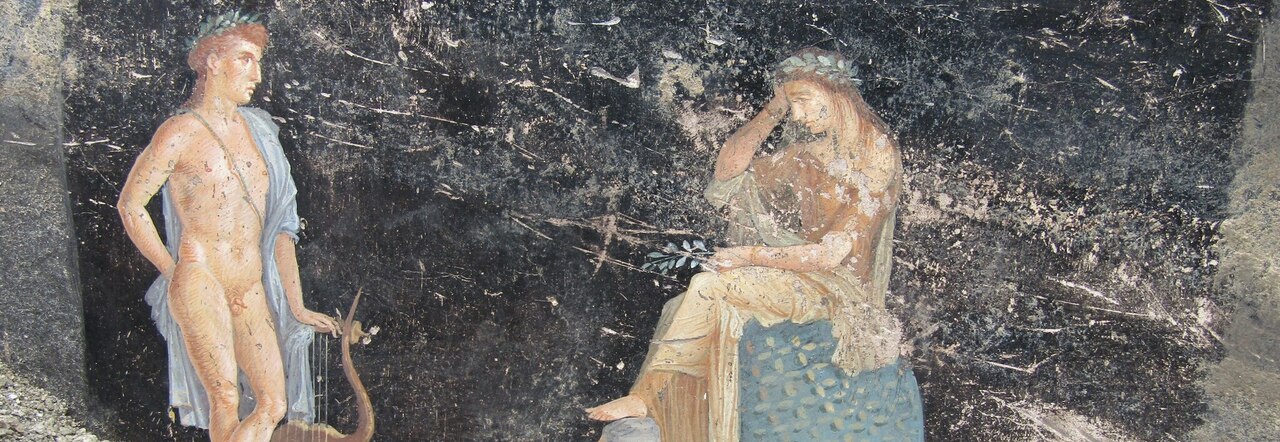Unveiling the Majestic Banquet Hall in Pompeii: A Glimpse into Trojan War Mythology

Thursday 11 April 2024, 11:15 - Last updated :
19:06
2 Minutes of Reading
A majestic banquet hall, with elegant black walls decorated with mythological subjects inspired by the Trojan War, is the latest discovery in Pompeii: it has emerged from the environments recently brought to light during the ongoing excavation activities in insula 10 of the Regio IX and is now fully visible in all its majesty.
The announcement of the new discovery was made by the Ministry of Culture. A refined environment in which to entertain oneself in convivial moments, between banquets and conversations, where one breathed the high standard of living testified by the spaciousness of the space, the presence of frescoes and mosaics dating to the third style, the artistic quality of the paintings, and the choice of subjects. The dominant theme seems to be that of heroism, for the depictions of pairs of heroes and deities of the Trojan War, but also of fate and at the same time the possibility, often not grasped, that man has to be able to change his own destiny.
In addition to Helen and Paris, indicated in a Greek inscription between the two figures with his other name Alexandros, the figure of Cassandra, daughter of Priam, appears on the walls of the hall in pair with Apollo. In Greek mythology, Cassandra was known for her gift of foresight and for the terrible fate that prevents her from changing the future. Despite her ability to see beyond the present, no one believes her words, due to a curse that Apollo inflicted on her for not having given herself to him, and thus she will not be able to prevent the tragic events of the Trojan War, which she had predicted. After being raped during the fall of Troy, she will end up as a slave of Agamemnon in Mycenae.
The frequent presence of mythological figures in the paintings of living and convivial environments of Roman houses had precisely the social function of entertaining guests and diners, providing topics for conversation and reflection on existence.
© ALL RIGHTS RESERVED
This article is automatically translated
This article is automatically translated
